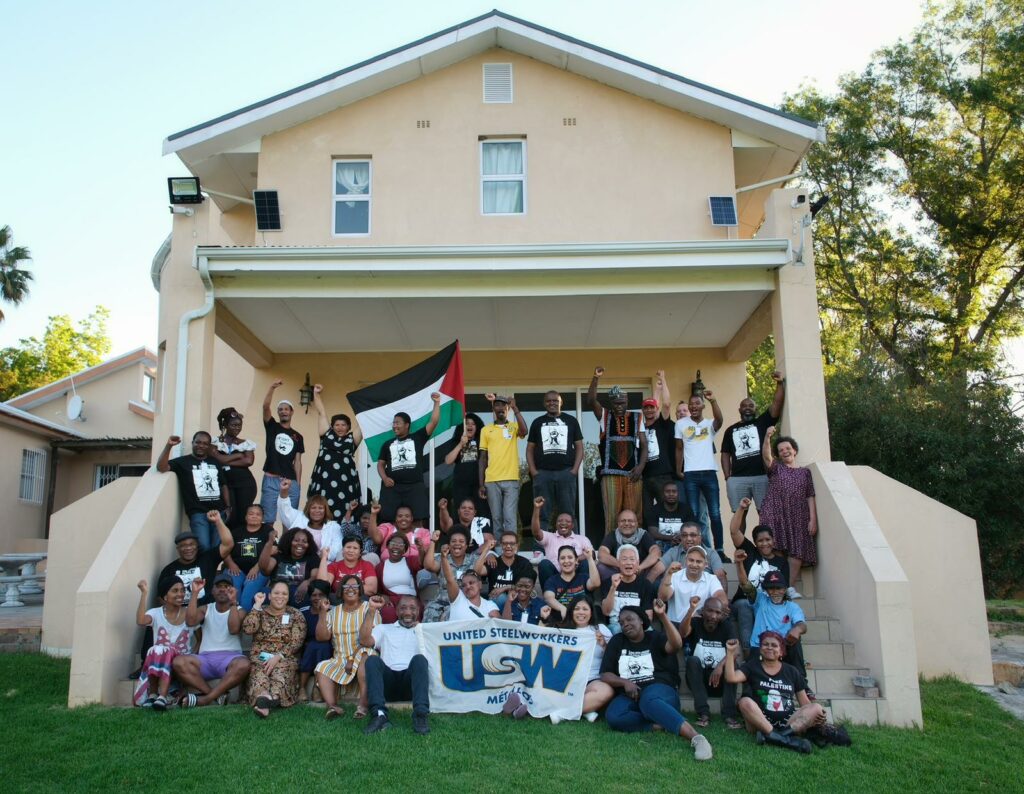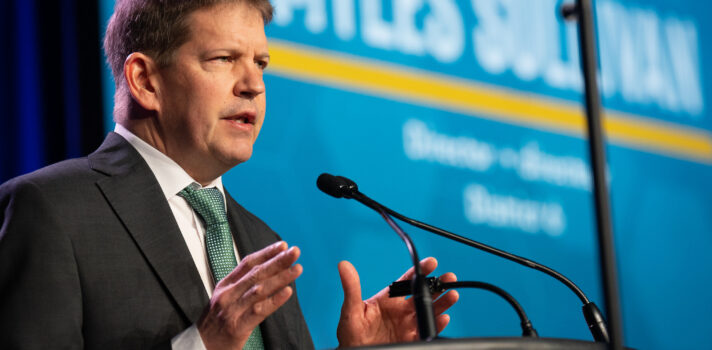“I’m so grateful for the opportunity to have the first-hand experience of witnessing the struggles of workers in South Africa, and the need for collaboration and global solidarity,” said Reah Arora, USW Local 2009 member. Arora is one of the members of the newly formed USW National Anti-Racism Committee (NAC) and participated in a delegation to South Africa with support from the Steelworkers Humanity Fund (SHF).
As part of its mandate, the SHF promotes opportunities for Steelworkers to participate in worker-to-worker exchanges with partner organizations around the world. The SHF delegation was made up of NAC members and other racialized USW staff in Canada. They seized the opportunity to immerse in South African society, learn more about its history and draw parallels to Canadian society and the legacy of colonization. While known for its natural beauty and cultural diversity, South Africa is also known for the apartheid regime and the fight that took place to end it. For the vast majority of non-white South Africans who did not benefit from this system, the fall of apartheid was a watershed moment that brought high hopes for change in their daily living conditions. However, SHF delegation members heard many personal accounts of the current struggles endured by South Africans due to neoliberal policies, in what is often referred to as “economic apartheid” that still overwhelmingly affects most non-white South Africans.
For over a decade, the SHF has been supporting the International Labour Research and Information Group (ILRIG), which has been instrumental in strengthening the capacity of individuals and organizations representing the unemployed and poor communities. They build from the lived experience of communities, providing them with tools to gain a critical understanding and an analysis of power structures in South African society and globally, and providing training on organizing to change the system that exploits them.
Through ILRIG’s network, the delegation met trade unionists and a wide range of human rights activists, representing some of South Africa’s most-marginalized populations.
They met members of the grassroots organization Intlungu Yase Matyotyombeni (IYM), in one of the largest impoverished communities in the outskirts of Cape Town. IYM organizes Black populations living in informal settlements that emerged during the COVID-19 pandemic, as people were forced out of their homes.
At Cissie Gool House, delegates met with members of Reclaim the City (RTC), who have occupied the former Woodstock Hospital. Amidst a critical housing crisis in Cape Town, RTC has turned the old hospital into homes for people who have been evicted or displaced.
In stark contrast, amidst the lush vineyards of Wellington, Western Cape, the group met with the Commercial Stevedoring Agricultural & Allied Workers’ Union (CSAAWU) to learn about the many challenges of agricultural workers, the sector with the lowest unionization rate in the country. On the last leg of the trip, the delegation attended ILRIG’s 20th Political School. This annual event provides a unique opportunity for activists from grassroots social movements all over South Africa to meet, learn and exchange on their experiences and build a movement for greater social justice. It is in this context that the delegation shared their own lived experiences with issues of racism in Canada, as Mark Austin of USW Local 1998 did.
In Mark’s words, “My interactions with the people in post-apartheid South Africa both stirred my soul and lifted my spirits. It was eye opening to see how participants could relate to our stories and a sombre reminder that anti-Black racism is alive and well in both societies.
” Beyond their individual experiences, delegates have committed to bring important reflections back to Canada to benefit the union, through a series of initiatives to advance a national anti-racism strategy – in particular, anti-Black racism in our union and Canadian civil society.
Amandla awethu!*
*Power to the People! – a rallying cry in Xhosa and Zulu languages, often heard during activist meetings in South Africa.
Share on Facebook



